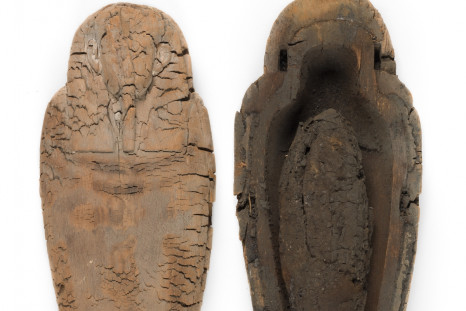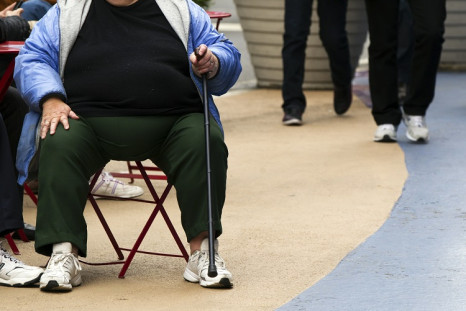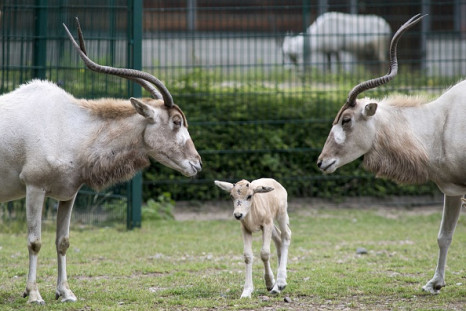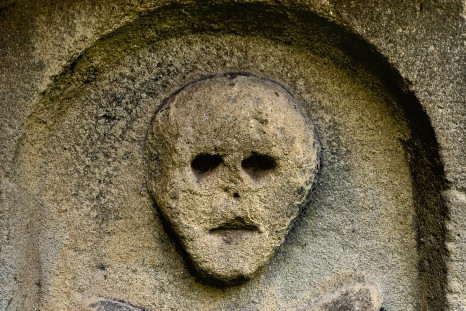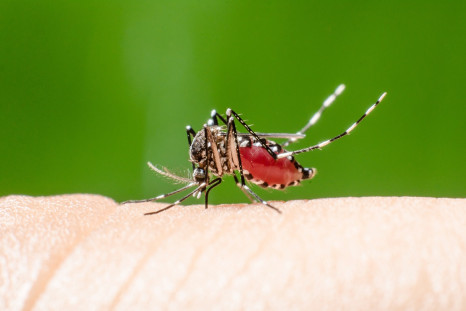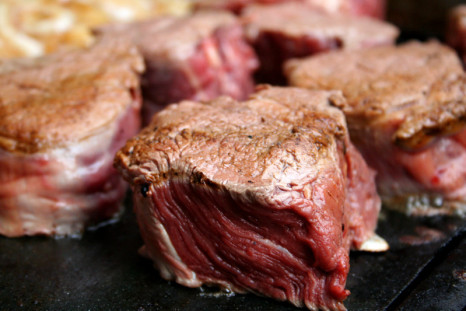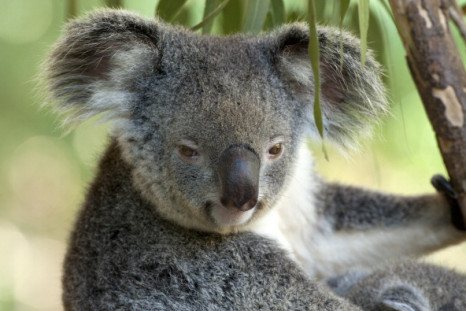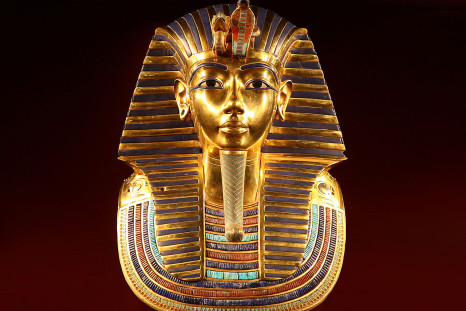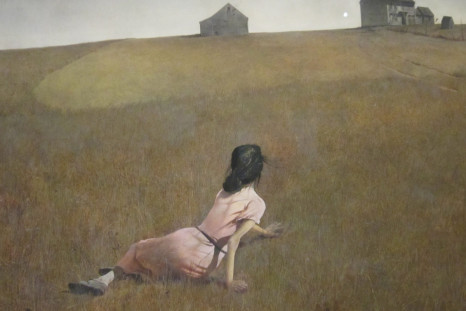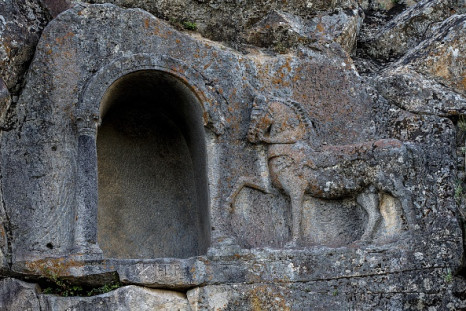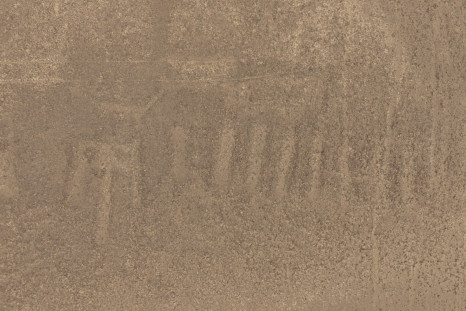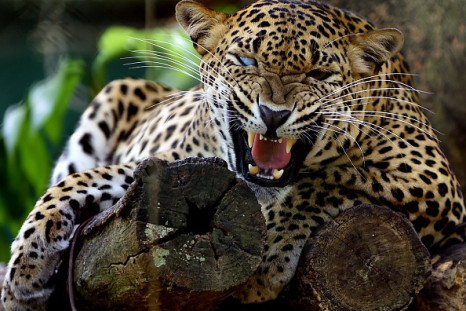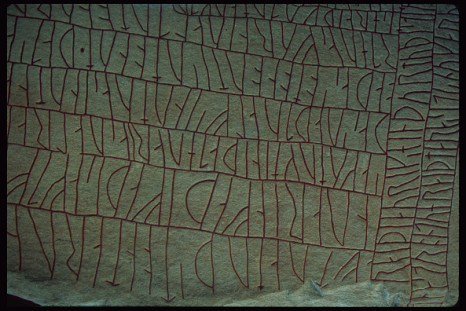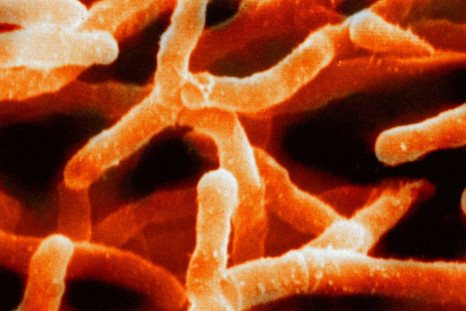More From Léa Surugue
Ancient Egypt: Youngest mummified foetus discovered in miniature coffin
The youngest foetus mummified by Ancient Egyptians has been discovered thanks to CT scans.
May 12, 2016
Newly-discovered biological marker increases risk of obesity by promoting fat absorption
Obesity and associated metabolic diseases linked to peptide called neurotensin.
May 11, 2016
Addax antelopes on brink of extinction with just three left in the wild
Addax antelope facing severe threats which has led to its near extinction.
May 11, 2016
Martial arts is an emotional battle: Athletes can win by reading opponents facial expressions
Martial arts athletes rely heavily on opponents' facial expressions to predict their next moves.
May 11, 2016
How the Eyam plague of 1665 spread among villagers during self-imposed quarantine
Scientists have modelled transmission routes of the plague outbreak which occurred in the village of Eyam.
May 11, 2016
Witchcraft belief creates antisocial cultures that are bad for business
Belief in witchcraft increases fear in society and reduces cooperation and socio-economic ties.
May 10, 2016
Malaria: Experimental vaccine shows promising results for long-term protection
Experimental malaria vaccine successful in protecting participants for a year.
May 10, 2016
Daily consumption of red and processed meat increases all-cause of mortality
New evidence shows higher mortality rates for those who consume this protein source every day.
May 09, 2016
Five new gene regions increase risk of endometrial cancer
Five new loci have been identified in women suffering from endometrial cancer.
May 09, 2016
Australia: Habitat loss and disease pushing Queensland koalas to extinction
Koala population has declined in the South-East of Queensland despite protection measures.
May 09, 2016
King Tutankhamun's tomb: Experts remain divided over existence of hidden chambers
An international conference in Egypt has highlighted need for new tests on King Tut's tomb.
May 09, 2016
Poland: Ancient remains of knights towers reveal life in the middle ages
Medieval Polish knights lived in wooden towers – remains of which have been found in the region of Silesia.
May 06, 2016
Eternal sunshine of the spotless mind: How PTSD patients can erase unpleasant memories
Changing the way we think about the context of past experiences could make them fade away.
May 06, 2016
Christina's World: Mystery illness of Andrew Wyeth's most famous painting discovered
Christina's World has fascinated art experts for long. Now, the disease suffered by the character is identified.
May 06, 2016
Kublai Khan's long-lost royal palace potentially discovered beneath Beijing's Forbbiden City
Relics from Yuan dynasty found in Forbidden City lay the clues to palace's likely location.
May 06, 2016
Turkey: 2,000-year-old tablet in shrine to jockey reveals ancient horse racing rules
A tablet discovered in an ancient shrine describes the rules of horse racing at the time.
May 05, 2016
Bipolar disorder: Discovery of common genetic roots with autism increases treatment hope
Among genes linked to bipolar disorder, scientists find some were previously implicated in autism.
May 05, 2016
Nazca Lines: Mysterious new animal geoglyph discovered in Peruvian desert
A Japanese team has discovered a new geoglyph shaped as an animal, with a potential spiritual purpose.
May 05, 2016
Poaching, trophy-hunting and severe habitat loss threaten world leopards
Global leopard population is on the decline and has lost 75% of its historic territory.
May 05, 2016
Abstinence pledges increase risk of STDs and pregnancy in young women
Compared to girls who reject abstinence, pledge-breakers may be less prepared to face risks of sexual activity.
May 04, 2016
Rök runestone: New interpretation of ancient text sheds light on Viking culture
A new reading of the Rök runestone reveals a series of riddles about the monument itself.
May 03, 2016
Why are labradors so fat? Breed is genetically programmed to love food
Scientists pinpoint a genetic mutation that may explain breed's obesity issues.
May 03, 2016
Why do twins run in families? Scientists identify two common genes in mothers
Non-identical twinning could be due to mother possessing one or two specific genetic variants.
May 03, 2016
Stereotypes warp how our brains see faces to fit our prejudices
Ingrained perceptions influence the way our brain processes people's faces.
May 03, 2016
The Earth may be home to one trillion species - mostly bacteria
One trillion species may inhabit the Earth, often undiscovered by humans.
May 02, 2016
Cult recruitment: Why do people join them and what techniques are used to lure them in?
IBTimes UK looks at people who get recruited by cults and what tactics these groups employ to get followers.
Apr 30, 2016
Why does boredom make us crave junk food? Blame low dopamine levels
Scientists explain why feeling bored may have us reaching for the bag of crisps.
Apr 29, 2016
Archaeology mystery: Did the pink and white terraces of Lake Rotomahana really disappear?
Geological exploration of lake floor points to possible traces of the long-lost terraces.
Apr 29, 2016
Bikini tests: Secret WWII documents shed light on dawn of nuclear era
Documents and analysis of historical shipwreck illustrates the tense time leading up to the cold war.
Apr 29, 2016
How to increase your child's attention span? Play with their toys
Parents who play with their children's toys help sustain their attention for longer periods.
Apr 28, 2016
Pages
- PREV
- 31
- 32
- 33
- 34
- 35
- 36
- 37
- 38
- 39
- NEXT



